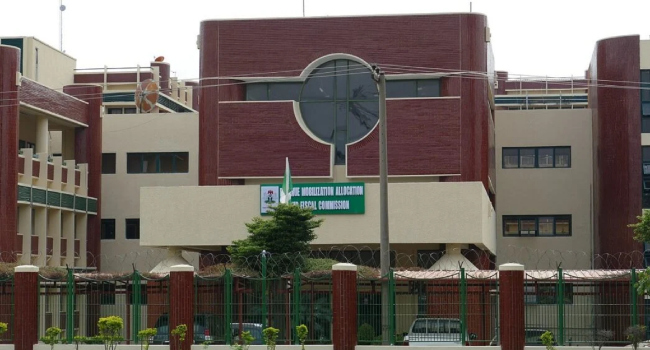RMAFC Initiates Review of Revenue Allocation Formula Amid Changing Economic Realities
The Revenue Mobilisation Allocation and Fiscal Commission (RMAFC) has officially commenced the review of Nigeria’s Revenue Allocation Formula (RAF), which governs the distribution of national revenue among the federal, state, and local governments.
Announcing the development at a press conference in Abuja on Monday, RMAFC Chairman, Mohammed Shehu, said the review is necessary to align with Nigeria’s current economic and constitutional realities. He noted that the existing formula, last reviewed in 1992, no longer reflects the evolving responsibilities, needs, and fiscal capacities of the different tiers of government.
“The commission aims to produce a fair, just, and equitable formula that accurately represents the functions assigned to each level of government by the Constitution,” Shehu said.
Under the current structure, the Federal Government receives 52.6% of national revenue, while states receive 26.7%, and local governments are allocated 20.6%. Additionally, 1% each is allocated to the Federal Capital Territory, the Ecological Fund, the Natural Resources Fund, and the Stabilisation Fund through vertical revenue sharing.
Citing Paragraph 32 (b), Part I of the Third Schedule of the 1999 Constitution (as amended), Shehu emphasized the commission’s constitutional mandate to periodically review the revenue-sharing formula to reflect changing national dynamics.
“In line with this constitutional obligation and in response to Nigeria’s evolving socio-economic and fiscal landscape, the commission has resolved to initiate a comprehensive review of the revenue allocation formula,” he said.
He further explained that recent constitutional amendments by the Ninth National Assembly, which devolved responsibilities such as power generation and distribution, railways, and correctional services from the Exclusive to the Concurrent Legislative List, have significantly increased the financial and administrative burdens on state governments.
“These developments necessitate a reassessment of our fiscal federalism structure to promote sustainable economic growth and strengthen the financial autonomy of states,” Shehu noted.
He assured that the review process would be inclusive, transparent, and data-driven. The commission plans to assess the fiscal performance, service delivery obligations, and developmental needs across all tiers of government.
To ensure comprehensive input, RMAFC will engage in broad consultations with stakeholders including the Presidency, National Assembly, state governors, the Association of Local Governments of Nigeria (ALGON), the judiciary, ministries, departments and agencies (MDAs), civil society organisations, traditional leaders, the private sector, and international development partners.
“The commission is committed to adopting cutting-edge research, empirical data, and global best practices in its analysis to deliver a revenue-sharing framework that supports equity, responsiveness, and national development,” Shehu added.




